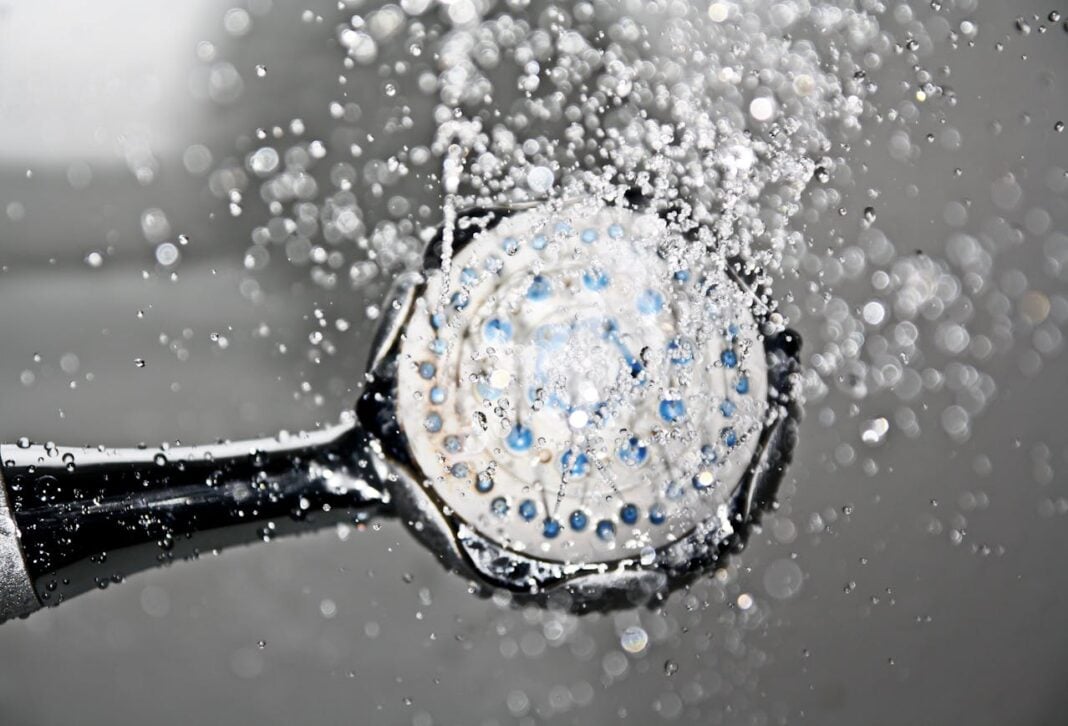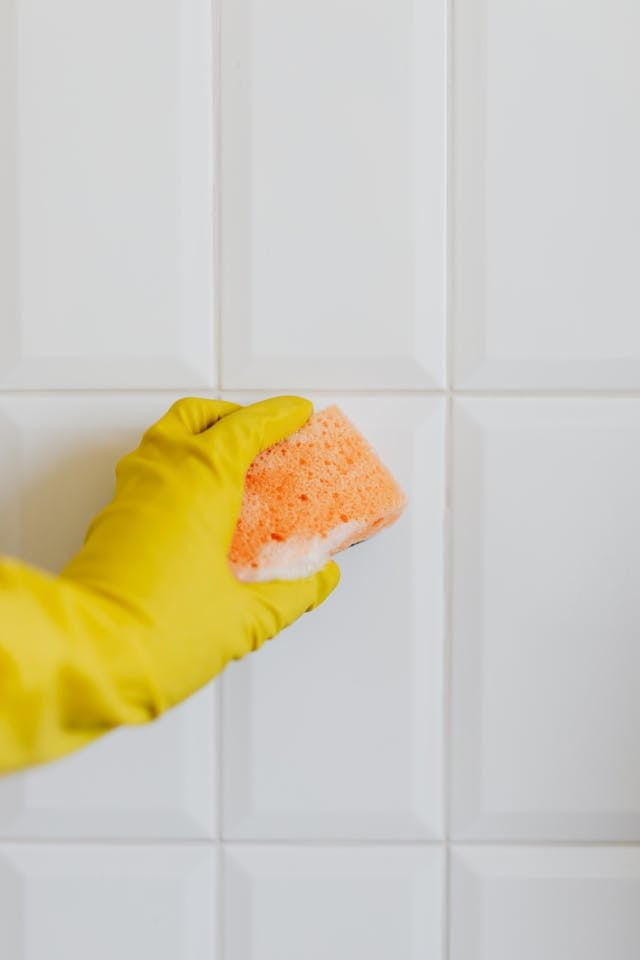Hard water is a common issue in many households without homeowners realizing its impact. It occurs when water contains a high concentration of minerals, particularly calcium and magnesium. This mineral buildup can result in unwelcome effects on your skin, hair, and clothes.
If you have noticed persistent dry skin, dull hair, or laundry that doesn’t seem to get clean, hard water may be the culprit. Understanding how hard water affects us can improve our day-to-day quality of life in our homes.
What is Hard Water?
To recognize the implications of hard water, understand what it is. Hard water contains dissolved minerals that come from the earth when water flows through limestone or gypsum deposits. As water evaporates, it can leave these minerals behind and create deposits. Hard water is safe to drink, but the minerals can result in various issues in our homes. Some people may not notice hard water unless they pay close attention to certain signs.
In many regions, water hardness is measured in parts per million (ppm) or degrees of hardness. Water is considered hard if it has more than 120 ppm of calcium and magnesium combined. You can get a water test kit for a deeper understanding of your water quality. Knowing this information helps you strategize how to mitigate the adverse effects of hard water in your life.
Effects of Hard Water on Hair
When assessing the effects of hard water on your hair, you may notice that it looks lackluster, dull, or even frizzy. Wash after wash, your hair may seem less vibrant, no matter how much conditioner or styling product you apply. The mineral build-up can prevent effective cleansing, leaving residues that weigh down the hair and restrict moisture retention. This might be disheartening if you have invested in quality shampoos or treatments. Some signs that hard water is affecting your hair include a flaky scalp and increased breakage. When hair feels dry and brittle, it can be challenging to manage. When you incorporate hard water into your hair care routine, you may find yourself needing to shampoo more frequently. If you’re wondering how to address these issues, consider specialized hair care products designed to counteract the effects of hard water. Many brands offer shampoos that can remove mineral build-up.
Signs of Hard Water on Your Skin
The most noticeable effect of hard water is its impact on skin hydration. People with hard water find that their skin feels dry, itchy, or irritated. The minerals in hard water can interfere with emulsifying agents found in soap or shower gel, meaning that those products won’t lather and wash away as effectively. This can result in soap residues that cause skin problems. Regular use of hard water may lead to eczema or exacerbate existing skin issues.
Another concerning indicator is the appearance of white spots or a film on your skin after bathing. If your moisturizer seems less effective or you require more frequent applications, you’re likely facing a hard water problem. Soap scum may not easily rinse off and create a barrier that affects proper skin hydration. Taking these into account will help you understand and pinpoint the effects of hard water.
Identifying Issues with Laundry
The impacts of hard water can affect your laundry. Clothes might appear dingy or gray instead of bright and clean, as hard minerals cling to fibers and diminish their color. This frustration can escalate if you notice your laundry detergent is less effective than expected. Soap residue can build up and make fabrics feel stiff or scratchy.
For families who routinely wash kids’ clothes or workout gear, this can be problematic, as cleanliness is a must in those areas. Conduct a simple test on your laundry. After washing clothes, inspect them closely for bubbles and residue. If they appear discolored or smell unpleasant even after washing, you may want to look into remedies for hard water. Using a water-softening agent or a special detergent designed for hard water can restore your laundry to its former glory.
Recognizing Hard Water Stains in Your Home
You may have noticed unsightly stains on your fixtures, dishes, or tiles if hard water is a prevalent issue. Scale buildup, the chalky white residue left behind by minerals, appears around faucets, showers, and sinks. Scale can damage plumbing and appliances. In severe cases, pipes can clog. Keep an eye out for that telltale white streak on dishes even after they come out of the dishwasher clean. Those spots are a red flag indicating increased mineral density in your water.
You may even find that your showerhead develops a crusty texture and can’t deliver a steady stream of water. This situation limits your shower experience, burns energy, and increases water bills due to decreased flow rates. Preventing scale build-up involves regular cleaning with acidic substances like vinegar or specialized hard-water cleaners. As a more permanent solution, installing a water softener will reduce the mineral content in your water supply. That’s the best solution for homes where mineral buildup occurs in multiple locations.
How to Address Hard Water Issues
If you suspect hard water is causing problems in various areas of your home, it’s time to assess potential solutions. A water softener is the most straightforward approach. These systems work by exchanging calcium and magnesium ions for sodium or potassium ions, reducing hardness levels. They can be installed at the point of entry for your home, treating all water that comes through your pipelines.
Some may consider using shower filters, which target hard water specifically at the point of use. While these solutions require an initial investment, the long-term benefits of healthier skin and hair, cleaner laundry, and reduced plumbing repair costs can outweigh the initial costs. Use hard water-specific detergents or chelating agents that can mitigate some of the adverse effects. Consulting with a local water quality expert can outline the best recommendations for your specific situation. Researching consumer reviews can gauge which products are the most reliable.
Identifying whether hard water is affecting your skin, hair, or laundry can help maintain a healthy home environment. Recognizing the signs early on can save you time and hassle in the long run. With adequate testing and the right strategies in place, you can tackle hard water issues head-on. By addressing these concerns, you can create a more comfortable and enjoyable living space for you and your family.







